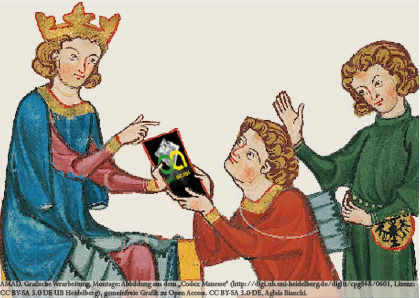AMAD
„Archivum Medii Aevi Digitale - Interdisziplinäres Open-Access-Fachrepositorium und Wissenschaftsblog für Mittelalterforschung‟Zur Einreichung

| Datum: | 2014 |
| Titel: | Zu den religiösen Aspekten tugendhafter Politik (tokusei) zum Schutz von Herrscher und Volk im frühen Mittelalter |
| Autor*in: | Schley, Daniel |
| Beschreibung: | This article focuses on administrative efforts through acts of benevo- lent or virtuous governance (tokusei) as means to secure divine protection from the Buddhas and kami in early medieval Japan. This aspect of tokusei has hitherto been neglected in this regard mainly because the term came to be associated primarily with economical regulations, especially debt relief. This narrow understanding originated most notably with the “Regulations of the Einin era”, Einin no tokuseirei 永仁の徳政令, issued in 1297, and has continued through the following centuries until the present day. However, tokusei – as will be argued – was part of the symbolic politics and religious justification of power, especially for the Tennō and his court in Kyōto, and later for the warrior governments and Shōgun in Kamakura. These acts of virtuous rule, manifesting in several ways, served along with religious rituals as emergency measures for divine protection against natural disasters like earthquakes, floods, crop failure or even astronomical phenomena such as comets. At the turn of the 12th century, tokusei began to be used for general political reforms as well, and with the dual government between Kyōto and Kamakura taking shape, the focus shifted to hardships of the rural population. In this context benevolent measures taken for the people came to be deeply connected with divine protection for the powerful. |
| URI: | https://www.amad.org/jspui/handle/123456789/79125 |
| Quelle: | http://www.zora.uzh.ch/id/eprint/99237/ https://doi.org/10.5167/UZH-99237 |
| AMAD ID: | 550843 |
| Enthalten in den Sammlungen: | BASE (Bielefeld Academic Search Engine) General history of Europe |

